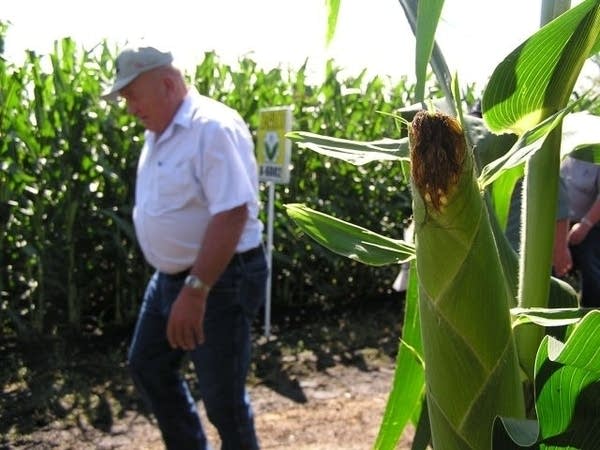Peterson becomes a powerful voice for agriculture
Go Deeper.
Create an account or log in to save stories.
Like this?
Thanks for liking this story! We have added it to a list of your favorite stories.

Rep. Collin Peterson knows in northwest Minnesota, the sugar beet crop is critical. So it shouldn't be a surprise that on Election Night, he said keeping beet farmers happy will be important.
"Well, obviously sugar is going to be taken care of, or we're not going to have a Farm Bill and the sugar guys are very happy," Peterson says.

In 2007 Congress will write a new Farm Bill. What sugar beet growers want in that legislation may surprise people. They're happy with the status quo. Nick Sinner, executive director of the Red River Valley Sugar Beet Grower's Association, says the current program manages sugar imports because the U.S. doesn't produce enough.
"So we have to bring in sugar and we bring in over a million tons of sugar every year," Sinner says. "It's about 1.15 million tons of sugar year from 41 quota-holding countries a year, that's been working, we've been doing it for several years and it's been working."
Turn Up Your Support
MPR News helps you turn down the noise and build shared understanding. Turn up your support for this public resource and keep trusted journalism accessible to all.
Sinner says by managing the imports, prices are controlled by the market and remain stable without government subsidies.
He says a bigger worry for all farmers is something no one can manage; the weather. Wheat and soybeans are big cash crops across the U.S. But based on current grain prices Minnesota's corn crop is worth the most; $3.3 billion. In recent years extreme weather conditions have affected prices and farmers bottom line.
Emergency disaster relief bills for these farmers are expensive and have not been popular with the Bush Administration. Peterson says it's a problem that tops his agenda.

"I want to put a permanent disaster program in the farm bill," Peterson says. "I might take the committee out to one of the hardest-hit areas and let them hear and see first hand what's happening to people to build support for that."
Peterson hasn't worked out details for a permanent disaster program. He believes requiring farmers to have crop insurance to qualify for disaster aid is one option that may appeal to the Bush Administration.
"The public is not going to keep paying for this, the farmer has got to pick some of this up," Peterson says. "We'll have it as program and if someone chooses not to do it then why should they get bailed out? I think maybe we could sell the administration on that."
The idea is appealing to some farm groups. Dave Torgerson, executive director of the Minnesota Wheat Growers Association, says the idea is generating a buzz in farm country.

"Producers in Minnesota and North Dakota says there is broad support for that type of thing," Torgerson says. "I know the Minnesota Wheat Growers support that. I know that the Minnesota Soybean Growers support that. So, I think it is generally well thought of by producers in Minnesota and around the country."
The Bush administration won't make much new money available for farm programs. In fact future chairman of the House Ag Committee President Bush will target the farm bill for cuts. Still, Peterson wants money to expand bio-diesel, ethanol and wind energy.
The 2006 election means many things in Congress will change. However Rep. Collin Peterson says one thing that will remain the same is the bi-partisan approach the House Agriculture Committee has taken in writing farm policy.





